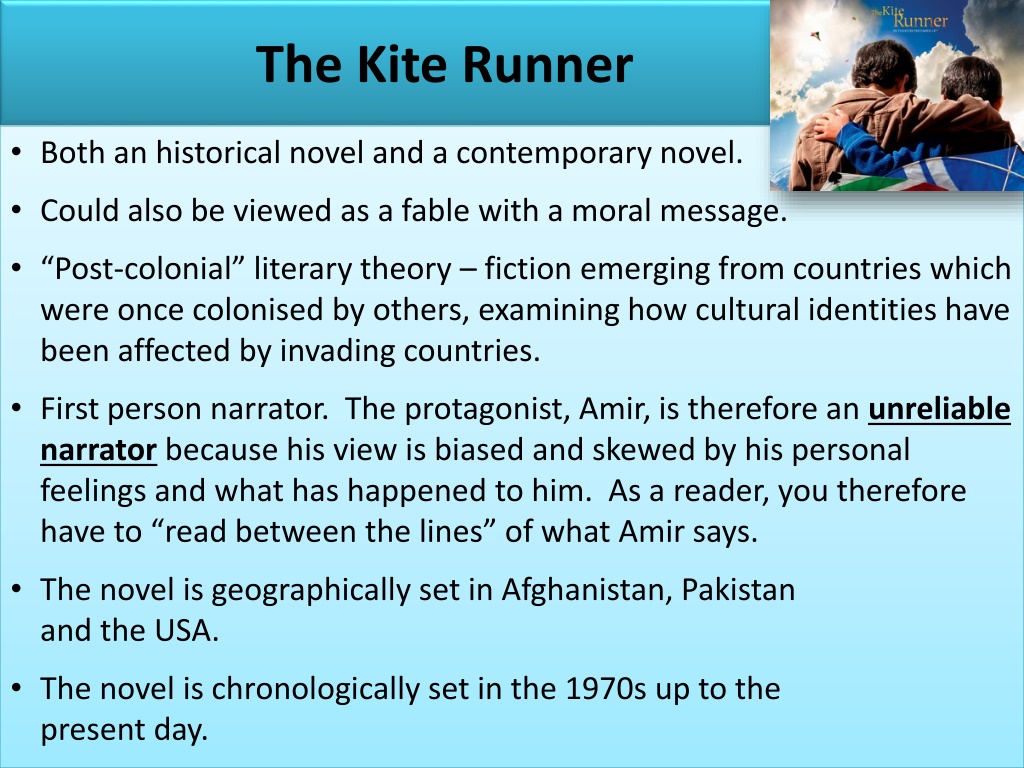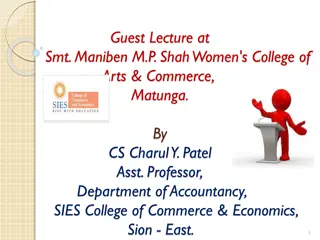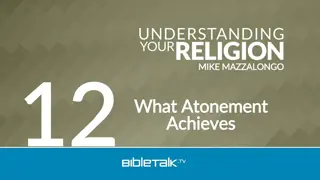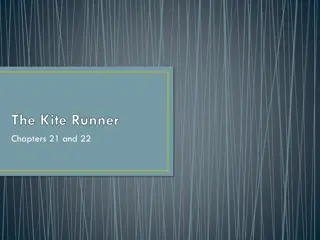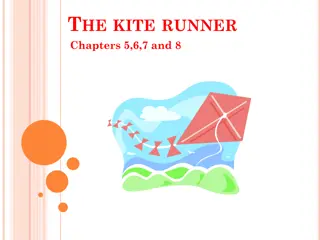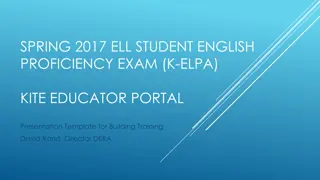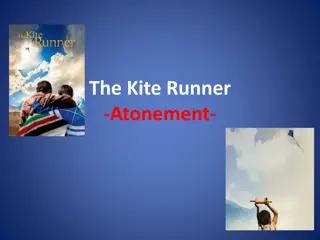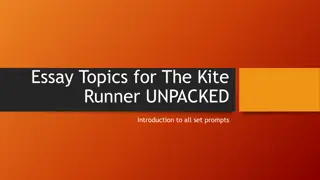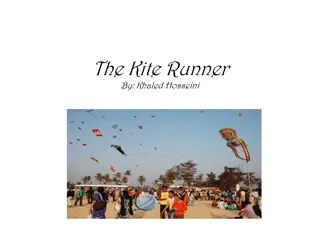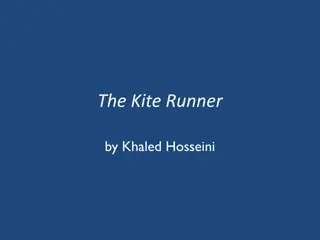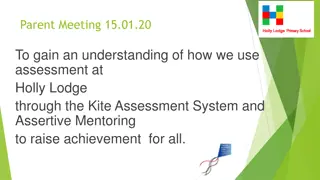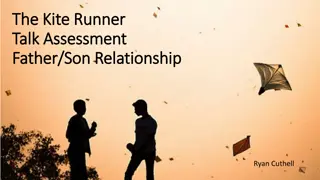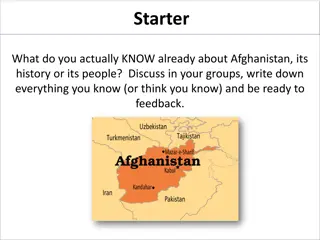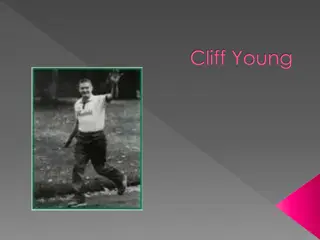The Kite Runner - An Insightful Analysis of Identity and Redemption
The Kite Runner intricately weaves together themes of history, identity, and morality through the eyes of a complex protagonist, Amir. Set in Afghanistan, Pakistan, and the USA, the novel employs flashbacks to build suspense and explore the post-colonial impact on cultural identity. Amir's unreliable narration challenges readers to discern truths beyond his biased perspective. As the story unfolds, questions of guilt, loyalty, and redemption come to the forefront, inviting reflection on the complexities of human relationships and personal growth.
Download Presentation

Please find below an Image/Link to download the presentation.
The content on the website is provided AS IS for your information and personal use only. It may not be sold, licensed, or shared on other websites without obtaining consent from the author. Download presentation by click this link. If you encounter any issues during the download, it is possible that the publisher has removed the file from their server.
E N D
Presentation Transcript
The Kite Runner Both an historical novel and a contemporary novel. Could also be viewed as a fable with a moral message. Post-colonial literary theory fiction emerging from countries which were once colonised by others, examining how cultural identities have been affected by invading countries. First person narrator. The protagonist, Amir, is therefore an unreliable narrator because his view is biased and skewed by his personal feelings and what has happened to him. As a reader, you therefore have to read between the lines of what Amir says. The novel is geographically set in Afghanistan, Pakistan and the USA. The novel is chronologically set in the 1970s up to the present day.
Chapter 1 Very short. Juxtaposes Amir s memories of Afghanistan with his current life in the USA. Although we start in 2001, the story is then retold in a series of extended flashbacks. The narrator therefore ALREADY KNOWS how his story is going to end this fact must be taken into consideration as it colours the rest of his narrative. This techniques of flashbacks allows the narrator to foreshadow events which have not yet occurred, building dramatic tension. Uses pathetic fallacy (where the weather is used to reflect the character s feelings) a frigid overcast day reflecting the oppressive and chilling emotions he experienced.
Chapter 1 Key Quotes I became what I am today at the age of twelve, on a frigid overcast day crouching behind a crumbling mud wall, peeking into the alley near the frozen creek...I have been peeking into that deserted alley for the last twenty-six years I ve learned about how you can bury it [the past] the past claws its way out It was my past of unatoned sins a pair of kites...soaring in the sky. They danced high above the trees...floating side by side like a pair of eyes For you, a thousand times over There is a way to be good again I thought of the life I had lived until the winter of 1975 came along and changed everything. And made me what I am today.
Chapter 2 Amir discusses the fact Hassan is from a lower status ethnic group, the Hazara; Hazaras have been persecuted by the Pashtuns (Amir s ethnicity) for many years. He also remembers that Hassan would take the blame for Amir, whenever they got into trouble. Imagery to describe Hassan and his ethnicity: a face like a Chinese doll chiseled from hardwood...eyes that looked, depending on the light, gold, green, even sapphire Amir clearly loves Hassan. Baba is a powerful man, but often dismisses his son, read one of those books of yours . He views Amir s intellectual abilities as being a sign of weakness. There is a lack of women Amir s mother died, Hassan s left.
Chapter 3 The idea that Baba wrestled a bear creates an unrealistic role model for Amir how can he ever live up to this? Baba teaches Amir his own interpretations of religious scripture that the only sin is theft. Amir believes he stole the life of his mother during child-birth and that is why his father hates him. Is this fair? The mythological idea of Baba is furthered by his building of the orphanage. However image can be deceiving Baba is possibly just trying to alleviate his guilt about Hassan. It is more evidence however that Amir will always struggle to live up to the figure of his father, who he has placed firmly on a pedestal. But shouldn t we always respect our parents? Amir overhears his father s disdain for him: he never fights back...there is something missing in that boy . How would he feel? Foreshadowing future events, Amir deals with this by being cruel to Hassan and taking out his frustrations on his friend.
Chapter 4 We are given more background information about Baba and Ali s history. The divisions are explored again: Baba and Amir are Sunni Pashtuns and Ali and Hassan are Shi a Hazaras. What other similar conflicts can you think of, either in history or in our present day? Amir and Hassan s favourite place is an old cemetery, underneath a pomegranate tree. The pomegranate is symbolic of life; according to the Koran, pomegranates are one of the fruits which Muslims will find in the gardens of paradise they are supposed to be a cure for envy and hatred. Where is the irony in that? We learn of the their love of stories, especially Rostam and Sohrab. The ability to read is a powerful tool Amir s mother used to be a teacher, using her skills to help others. It is significant that Amir chooses NOT to teach Hassan to read, therefore retaining his power and superiority over Hassan. He goes a step further teaching him the wrong meanings for words and teasing him. Why does he do this? Amir starts writing stories his father is not interested, but Rahim Khan encourages him. When Hassan points out a possible hole in the story, Amir becomes angry why?
Chapter 5 Setting is important and in this chapter, we are given the hints of conflict and terror. Gunfire is heard and there is a coup which overthrows the king of Afghanistan. It foreshadows what is to come. Amir and Hassan are attacked by Assef and his gang. Hassan scares the bullies off with his slingshot and Assef promises revenge. This opens up the gap between Amir and Hassan as Amir thinks he s not my friend!...He s my servant! , foreshadowing how he will easily discard his friend. Can you think of any other instances where a friend is easily cast aside, to save one s own skin? Baba arranges for Hassan s cleft lip to be surgically corrected a symbol of healing and restitution. Baba is trying to salve his own conscience. However all it does is create more jealousy from Amir towards Hassan. Would things have been different if Amir had known Hassan was his brother at this point? Examine Assef s love of Hitler and the way that the Pashtuns treat the Hazaras what comparisons can be made?
Chapter 6 The boys prepare for the winter kite tournament. Baba buys new kites for both boys, again making Amir jealous. The kite symbolises freedom and independence and is symbolic of Afghanistan spirit. It can also be seen as a metaphor for childhood. Amir tests Hassan s loyalty by asking him if he would eat dirt if commanded to do so more evidence of his jealousy and cruelty. Hassan says that he would, but challenges Amir over whether he would ever actually ask him to do so. Amir backs down, illustrating his unease about being socially superior to Hassan he doesn t know how to handle it. Hassan s challenge shows that he is fully aware of the balance of power between them. This is reinforced when Hassan allows Amir to win at cards. Is Hassan therefore to blame in reinforcing their social differences? Is he weak or strong to act in such a way? Amir is desperate to win the tournament, in order to obtain his father s approval, love and respect. Why would his father be proud?
Chapter 7 This is a key chapter of the novel. It is a major turning point in the story and the rape of Hassan is the event that Amir has been foreshadowing in earlier chapters and one which he will continually refer back to in future chapters. It completely alters the lives of both Hassan and Amir. What would have happened if Amir HAD stepped in? (We will look at this in detail later!) Re-read the opening first section of Chapter 7 Hassan s dream. In pairs, discuss: Is it a positive or negative omen for the upcoming tournament? Why has Hosseini included it at this point?
Chapter 7 Let s look at important quotes leading up to the rape scene. We are then given the juxtaposition of ideas...the happiness of the tournament victory and the horror of the rape. This contrast is shown by setting the lightness of the day becomes the darkness of the alley. Let s read from p.67, I heard the voices again, louder this time.... In groups of 3 or 4, discuss how Hosseini changes his style of writing here. What is he trying to imply? Think about the emotions of Amir. Do the events in the alley make Amir the person he becomes? Or was his fate already sealed? Whose fault is it, ultimately? Discuss how Hassan, Baba, Amir and Assef could be apportioned blame and debate their responsibilities. Be ready to feedback!
Chapter 8 Amir feels guilty for not helping Hassan, but he won t take responsibility for it or admit to what happened. Amir gets travel sick but is this all it is? He travels alone with his father, without Hassan. I finally had what I d wanted all those years. Except now that I had it, I felt as empty as this unkempt pool I was dangling my legs into. What literary technique is used here? I watched Hassan get raped, I said to no one. Baba stirred in his sleep...part of me was hoping someone would wake up and hear, so I wouldn t have to live with this lie anymore. But no one woke up and in the silence that followed, I understood the nature of my new curse: I was going to get away with it. Your thoughts? I thought about Hassan s dream...There is no monster, he d said...except he d been wrong about that. There was a monster...I was that monster. Hassan tries to become friends again, but Amir rejects him. He tries to get Baba to dismiss Ali and Hassan, but this infuriates Baba. LI: Engage with further chapters in the book / Analyse key scenes, looking at literary techniques and themes
Chapter 8 Let s read Page 86. Your thoughts? Symbolic and ironic used to be their safehaven; it no longer is, because Amir is bringing his guilt with him. Pomegranates used to be a symbol of their bond (remember a cure for envy and hatred). Now they are symbolic of the breaking of their bond. Hassan hits himself with the final pomegranate by once more accepting the situation, just as he did with the rape the sacrificial lamb. However he also refuses to allow Amir to assuage his guilt by fighting back. He might be socially inferior to Amir, but he is turning the other cheek and taking the moral high ground. At Amir s birthday party, Assef continues to show his horrific nature his present is a biography of Hitler. What does this symbolise? This is symbolic the passing of the gift between them illustrates their joint guilt in the act against Hassan. The chapter concludes on Assef continuing to torment Hassan, Hassan having to take it and Amir refusing to step in and help. Their roles are reinforced. LI: Engage with further chapters in the book / Analyse key scenes, looking at literary techniques and themes
Chapter 9 Amir can no longer bear to look at Hassan and be reminded of his guilt. He frames Hassan to look like a thief. Read from They d both been crying......up to....We are leaving, Agha sahib . Analyse what is being said and pick out relevant quotes. Be ready to feedback. Find an example of pathetic fallacy in the last section of this chapter (from In Kabul, it rarely rained in the summer.....). At the end of the chapter, Amir has yet another chance to make amends one of many opportunities but he fails yet again to act. Can you name all the opportunities he had to act the right way? LI: Engage with further chapters in the book / Analyse key scenes, looking at literary techniques and themes
Chapter 10 - 11 5 years later. They flee Afghanistan after the Russians invade. Weak Son v. Strong Father Amir gets travel sick again; Baba stops the rape of a woman. This act contrasts starkly with Amir failing to stop Hassan s rape. Kamal former cohort of Assef has apparently suffered the same fate as Hassan. Another reminder for Amir his story is almost identical. Yet Kamal dies is this maybe symbolic? Can Amir leave behind his guilt, as he starts his new life? 1980s living in America. Baba is now a lower-class citizen, but still commands respect amongst the Afghans. He refuses to learn English and struggles to fit in; ironically it is Amir who fits in better and becomes a success. For me, America was a place to bury my memories. For Baba, a place to mourn his. Amir describes America as; someplace with no ghosts, no memories and no sins . What literary technique is this? Baba tries to persuade Amir away from creative writing... But I would stand my ground, I decided. I didn t want to sacrifice for Baba anymore. The last time I had done that, I had damned myself . A crucial turning point. LI: Engage with further chapters in the book / Analyse key scenes, looking at literary techniques and themes
Chapter 11 Analyse Amir meeting Soraya (p. 130, from Padar Jan, you forgot your tea....until.... Flew away ). What literary techniques can you find? Is this what love at first sight feels like?! LI: Engage with further chapters in the book / Analyse key scenes, looking at literary techniques and themes
Chapter 12 Baba falls ill with lung cancer and refuses treatment. Amir falls in love with Soraya and asks for his father s help in asking for her hand in marriage such respect is very important to Afghan families. Soraya feels she cannot commit to Amir until she admits her guilty secret that she ran off with another man when she was younger You need to know. I don t want us to start with secrets . Amir accepts her regardless. What is the irony that is occurring here? Soraya admits that she longs to be a teacher because she wants to do something worthwhile. What is the irony here? I thought of how I had used my literacy to ridicule Hassan. How I had teased him about big words he didn t know. LI: Engage with further chapters in the book / Analyse key scenes, looking at literary techniques and themes
Chapter 13 They marry and Soraya helps to care for Baba. Amir is touched to learn that she has been sharing his stories with Baba acceptance at last. Baba dies. I realized how much of who I was, what I was, had been defined by Baba and the marks he had left on people s lives. My whole life, I had been Baba s son . Now he was gone. Baba couldn t show me the way anymore; I d have to find it on my own. The thought of it terrified me. Amir has his first novel published. Soraya and Amir try for a family. What sort of a father would I made, I wondered. I wanted to be just like Baba and I wanted to be nothing like him. What does he mean by this? They find they are unable to have children. LI: Engage with further chapters in the book / Analyse key scenes, looking at literary techniques and themes
Chapter 14 Skim read this chapter and write your own short summary one paragraph. Discuss in pairs and be ready to feedback. What is important about the structure that is occurring here? Think about where this chapter is in both the chronological position and the actual physical position in the book. What echoes can you find from Chapter 1? Why is there the juxtaposition of the couple s failed attempts at creating a child and Amir s dream of Hassan? LI: Engage with further chapters in the book / Analyse key scenes, looking at literary techniques and themes
Chapter 15 A return to Amir s past and heritage. He travels first to Pakistan and meets a very ill Rahim Khan. We learn about the terrible changes in Afghanistan and the brutal regime of the Taliban: They don t let you be human . Can we empathise with this at all? Can we imagine how we would feel if this happened here in Scotland? How has Amir often viewed Rahim Khan? Why is it symbolic that here is another father figure dying? They lead to the change in Amir from being a scared boy into a strong man. The destruction of Baba s orphanage is symbolic how? Symbolic of Baba s reputation about to be challenged. Symbolic of Baba s death. Symbolic of the vulnerability of children ( a recurring motif). Synechdoche where a part is used to represent the whole (eg the pen is mightier than the sword ). The orphanage represents Afghanistan. LI: Engage with further chapters in the book / Analyse key scenes, looking at literary techniques and themes
Chapter 16 Change of narrator Rahim Khan. The only chapter to be told be someone other than Amir. We can hear his different tone, phrasing and sentence structure. He furthers the narrative of the plot significantly: Unable to maintain Baba s house by himself, he seeks out Hassan; Ali has been killed: A land mine. Is there a more Afghan way of dying? , but Hassan and his wife, Farzana, agree to come. Farzana gives birth to a son, Sohrab (symbolic as this is the name from the boys childhood stories). Hassan s long-lost mother, Sanaubar, returns. There is forgiveness and acceptance and she returns to their family until her death four years later. The Taliban return to the country and there is violence and upheaval. Kite flying is banned symbolic destruction of their past. Read the last line . It is a change to finally have the introduction of females. However, it is a male-orientated book, reinforced by Hassan s daughter being stillborn, but his son surviving. Sohrab is a mixture of both Amir & Hassan he loves books and reading, yet is skilled with the slingshot & a talented kite runner. LI: Engage with further chapters in the book / Analyse key scenes, looking at literary techniques and themes
Chapter 17 Although Amir is once again narrating, we hear another voice Hassan s voice through his letter. It is important to hear HASSAN s words himself, not just Amir s interpretation. Read the letter now and be ready to feedback - what can you infer about Hassan from this letter? Read the description of Hassan s death. How does the structure here represent what is occurring? The structure is broken emphasising how devastating this news is. Amir has no words, just a repetition of no . Why does this news hit him so hard? Not only has his friend been killed, he has also lost his chance of atonement and forgiveness. However this is another step in Amir s metamorphosis. Rahim asks Amir to go and rescue Sohrab. He also explains that Hassan was Amir s brother. Amir reacts angrily and is incredibly hurt. He storms out of the apartment. LI: Engage with further chapters in the book / Analyse key scenes, looking at literary techniques and themes
Chapter 17 Key Quotations Kindness is gone from the land and you cannot escape the killings. Always the killings. I dream that my son will grow up to be a good person, a free person, and an important person. Children are fragile...Kabul is already full of broken children... And why you? I think we both know why it has to be you, don t we? I felt like a man sliding down a steep cliff, clutching at shrubs and tangles of brambles and coming up empty-handed. It was a shameful situation. People would talk. All that a man had back then, all that he was, was his honor, his name, and if people talked... I m 38 years old and I ve just found out my whole life is one big fucking lie! What can you possibly say to make things better? Nothing. Not a goddamn thing! LI: Engage with further chapters in the book / Analyse key scenes, looking at literary techniques and themes
Chapter 18 Amir reflects on his childhood and pieces of the puzzle fall into place the reasons why Ali and Hassan were so beloved by Baba. Amir realises that he is not so different from his father after all they both had a secret with regards to their Hazara servants. However Amir realises that he denied his responsibility to Hassan, whilst Baba tried to make amends. Read the paragraph beginning How could he have lied to me all those years... (p.208). Why is Amir so hurt? Why is his indignation perhaps misplaced? Amir is having to come to terms with the fact his father was fallible just like all of us. There is a way to be good again...A way to end the cycle. I was older now, but maybe not yet too old to start doing my own fighting. He makes the decision to go to Kabul this is a new Amir we are seeing. LI: Engage with further chapters in the book / Analyse key scenes, looking at literary techniques and themes
Chapter 19 Amir s sickness is a reminder that he is still weak although he is making strides, he still has a long way to go yet. I was afraid I d changed my mind. I was afraid I d deliberate, ruminate, agonize, rationalise, and talk myself into not going. Is his sickness psychological? However - he is changing - The past that had come calling....this one last chance at redemption. As Amir returns to Kabul, we see the horror and devastation through his eyes. I feel like a tourist in my own country massive changes afoot. Maybe you should write about Afghanistan again. Tell the rest of the world what the Taliban are doing to our country. Why is this significant? LI: Engage with further chapters in the book / Analyse key scenes, looking at literary techniques and themes
Chapter 19 Amir admits to Wahid that Hassan, a Hazara, was his half-brother, despite his instinct telling him to lie. Why is this significant? Dreams play an important part in this book. Re-read the dream on p.221. Your thoughts? Read the last paragraph of the chapter. Why is this contrast being made here? Read the hand out on Chapter 19. LI: Engage with further chapters in the book / Analyse key scenes, looking at literary techniques and themes
Chapter 20 Amir continues his education about the real state of Kabul. He uses rich imagery to describe this new version of Kabul, evoking the pain and sadness that he feels. Find examples from the first three or four pages. Lamb...The only people in Kabul who get to eat lamb now are the Taliban . Why is this significant? There is a coincidental meeting (common technique in literature) with his mother s old teaching colleague. That he is now a beggar is symbolic of the Taliban s lack of regard for education. He tells Amir a tiny bit of information about his mother, I had just learned more about my mother from this old man on the street than I ever did from Baba. At the orphanage, Amir learns in horror that the man who runs it is forced to sell children to the Taliban, simply to have a slight hope of caring for the remaining children. Why would this specifically affect Amir? Not only because it involves his nephew, but also because he desperately wants children , but can t have them. It also contradicts the ideal of Baba s orphanage. LI: Engage with further chapters in the book / Analyse key scenes, looking at literary techniques and themes
Chapter 21 Amir returns to his old house. He is reconnecting with the past, what he has been running away from for so long. He now realises he no longer wants to forget the past, but embrace it and move forward. I don t want to forget anymore. I had never in my life wanted to be away from a place as badly as I did now. But we have to stay. This is a huge change from the boy who ran away. He visits the pomegranate tree it is dead. The inscription is still there. What is symbolic about those 2 things? The death of the tree is symbolic of the end of the relationship; however, the inscription is still there, symbolising that their friendship can exist beyond the barrier of death. He witnesses a stoning and the chilling, cruel depravities of the Taliban. What is the effect of the juxtaposition of the football match and the stoning? Afghan people have become used to violence, immune to the horror. What is ironic about the Taliban s clothing? What two people is the leader compared to? Dressed all in white: symbol of purity. Jesus and John Lennon: a rock god messiah. LI: Engage with further chapters in the book / Analyse key scenes, looking at literary techniques and themes
Chapter 22 Amir, wearing a false beard, goes to meet the John Lennon Taliban leader. He passes men with rifles. Analyse the sentence structure and language in the paragraph beginning I crossed my legs . The leader appears, still covered in blood (symbolic as the red stains the purity of his white clothing), removes Amir s beard and taunts him. He personifies evil: you don t know the meaning of the word liberating until you ve..stood in a roomful of targets, let the bullets fly, free of guilt and remorse, knowing you are virtuous, good, and decent. Knowing you re doing God s work. It s breathtaking. Sohrab enters, looking like Hassan: it was the Chinese doll face of my childhood . However, he is wearing make-up, head shaved, bells on his ankles. He is forced to dance for the Taliban. I guessed music wasn t sinful as long as it played to Taliban ears. It is clear that Sohrab has been abused, probably sexually, by the Taliban leader. LI: Engage with further chapters in the book / Analyse key scenes, looking at literary techniques and themes
Chapter 22 The Taliban leader then reveals himself to be Assef. He narrates a horrifying, sociopathic description of his past few years, believing himself to be on a mission from God. Amir replies, What mission is that? I heard myself say. Stoning adulterers? Raping children? Massacring Hazaras? All in the name of Islam? The words spilled suddenly and unexpectedly, came out before I could yank the leash. I wished I could take them back. Swallow them. But they were out. I had crossed a line, and whatever little hope I had of getting out alive had vanished with those words. But here he is finally acting like his father, being brave and standing up to those in the wrong. Sohrab seyes flicked to me. They were slaughter sheep s eyes. They even had the mascara I remembered how, on the day of Eid of qorban, the mullah in our backyard used to apply mascara to the eyes of the sheep and feed it a cube of sugar before slicing its throat. I thought I saw pleading in Sohrab seyes . The theme of the sacrificial lamb reoccurs. What will be different this time? LI: Engage with further chapters in the book / Analyse key scenes, looking at literary techniques and themes
Chapter 22 Let s read p. 264 p.265. Look for the short sentences, repetition, symbolism, key themes, turning point, imagery. What tenses are used? Why? The pain of redemption: by accepting the inevitability of this fight, this beating, Amir is paying the price for his redemption. He can lay his demons to rest and finally banish the pain and guilt he has carried for so long. My body was broken just how badly I wouldn t find out until later but I felt healed. Healed at last. I laughed. He receives the beating that he feels he deserved ever since the day he tried to provoke Hassan with the pomegranates into hitting him. The narrative goes full circle as Amir is saved by Sohrab and his slingshot. However on this occasion, Amir has played his full part in the fight and has no reason to be ashamed. Amir and Sohrab escape. The narrative mirrors classical mythology the hero / protagonist not only overcomes his foe / enemy, he also overcomes his own weaknesses and inadequacies. LI: Engage with further chapters in the book / Analyse key scenes, looking at literary techniques and themes
Chapter 23 Amir recovers in hospital, the structure of short sentences and paragraphs mirroring his slipping in and out of consciousness. Another dream providing clues to Amir s state of mind. His father is wrestling the bear and then Baba turns into Amir Amir is finally the man his father wanted him to be. He is facially scarred like a harelip. He now resemble Hassan, like twins. He is now worthy to be considered like Hassan. It is a scar of honour. Rahim Khan has left to die in peace; in his letter he forgives Amir and explains Baba was hard on Amir because he could not openly show his love for Hassan. Read the letter on p.276. There are no adoptive parents waiting, as Rahim Khan had promised Amir takes Sohrab to Islamabad while he decided what to do. On the car journey, there is no mention of Amir being car sick and he sleeps the whole journey. Why are these two things significant? LI: Engage with further chapters in the book / Analyse key scenes, looking at literary techniques and themes
Chapter 24 Sohrab is obviously a very damaged little boy. Not only has he been badly abused, but he carries the guilt of what he did to Assef and the fact he is beginning to forget what his parents looked like. Sohrab runs away and Amir frantically chases after and finds him. Amir comforts him, like a caring father would. He invites him to go back to the USA with him. There are a lot of children in Afghanistan, but little childhood. Sohrab is terrified of being returned to an orphanage, but Amir promises he won t be. Amir rings Soraya and finally confesses his story to her and feels a sense of relief, something lifting off my chest . She agrees to Sohrab moving to America, demonstrating real love for her husband. Amir goes to the American embassy. LI: Engage with further chapters in the book / Analyse key scenes, looking at literary techniques and themes
Chapter 24 Mr Andrews appears to ignore Sohrab altogether. He is only interested in lovingly caring for his tomato plant. Andrews was standing in a rectangle of sunlight, absently staring out the window, his hands turning the potted tomato plants toward the sun, petting them lovingly. Why is this? Andrews daughter committed suicide he is clearly not dealing with this very well and ignoring this tragedy by focusing elsewhere. He is the Amir of times past not the Amir of today, who is pro-active in changing his life. There are difficulties with getting a visa for Sohrab and Amir admits that he might have to go into an orphanage for a while. Through Soraya, he then finds a solution and goes to tell Sohrab the good news but Sohrab, fearing the orphanage, has tried to commit suicide. Suddenly I was on my knees, screaming. Screaming through my clenched teeth. Screaming until I thought my throat would rip and my chest explode. Later, they said I was still screaming when the ambulance arrived. LI: Engage with further chapters in the book / Analyse key scenes, looking at literary techniques and themes
Chapter 25 Sohrab survives, but is uncommunicative and withdrawn. In the hospital, Amir reads from a storybook a continued motif throughout this book. He tries to connect with Sohrab through stories, just like he did with Hassan. But Sohrab wishes either for his old life back or to be dead. Amir is desperate for Sohrab s forgiveness, for mentioning the orphanage. He eventually goes back to America with Amir, but is still depressed and withdrawn. He no longer speaks. I brought Hassan s son from Afghanistan to America, lifting him from the certainty of turmoil and dropping him in a turmoil of uncertainty . Soraya s father, the General, makes a dismissive remark about Sohrab s ethnicity and Amir demonstrates how he has fully become a strong man he stands up to the General, challenges the racism and reveals the story about Sohrab s parentage something that Baba had tried to hide. LI: Engage with further chapters in the book / Analyse key scenes, looking at literary techniques and themes
Chapter 25 I looked at the photo. Your father was a man torn between two halves, Rahim Khan had said in his letter. I had been the entitled half, the society-approved, legitimate half, the unwitting embodiment of Baba s guilt. I looked at Hassan, showing those two missing front teeth, sunlight slanting on his face. Baba s other half. The unentitled, unprivileged half. The half who had inherited what had been pure and noble in Baba. The half that, maybe, in the most secret recesses of his heart, Baba had thought of as his true son. I slipped the picture back where I had found it. Then I realised something: That last thought had brought no sting with it. Closing Sohrab s door, I wondered if that was how forgiveness budded, not with the fanfare of epiphany, but with pain gathering its things, packing up, and slipping away unannounced in the middle of the night. LI: Engage with further chapters in the book / Analyse key scenes, looking at literary techniques and themes
Chapter 25 The story returns to its main motif: kite flying. Soraya and Amir take Sohrab to Lake Elizabeth Park where a small gathering of Afghans is taking place. The children start to fly kites. Pathetic fallacy again rain clouds clearing to produce sunny skies. Read the last five pages (from p.336). There are a lot of significant quotes here highlight anything that you think is relevant. The tables are turned and Amir runs the kite for Sohrab, For you, a thousand times over, I heard myself say. This illustrates his clear love, loyalty and devotion to Sohrab a final act of penance, swapping places. He no longer thinks himself as better than his servant. Sohrab smiles. A small thing the first time he has shown any positive sign but a massive step in his recovery. The story ends on a small, but positive, pinprick of light and hope. LI: Engage with further chapters in the book / Analyse key scenes, looking at literary techniques and themes
